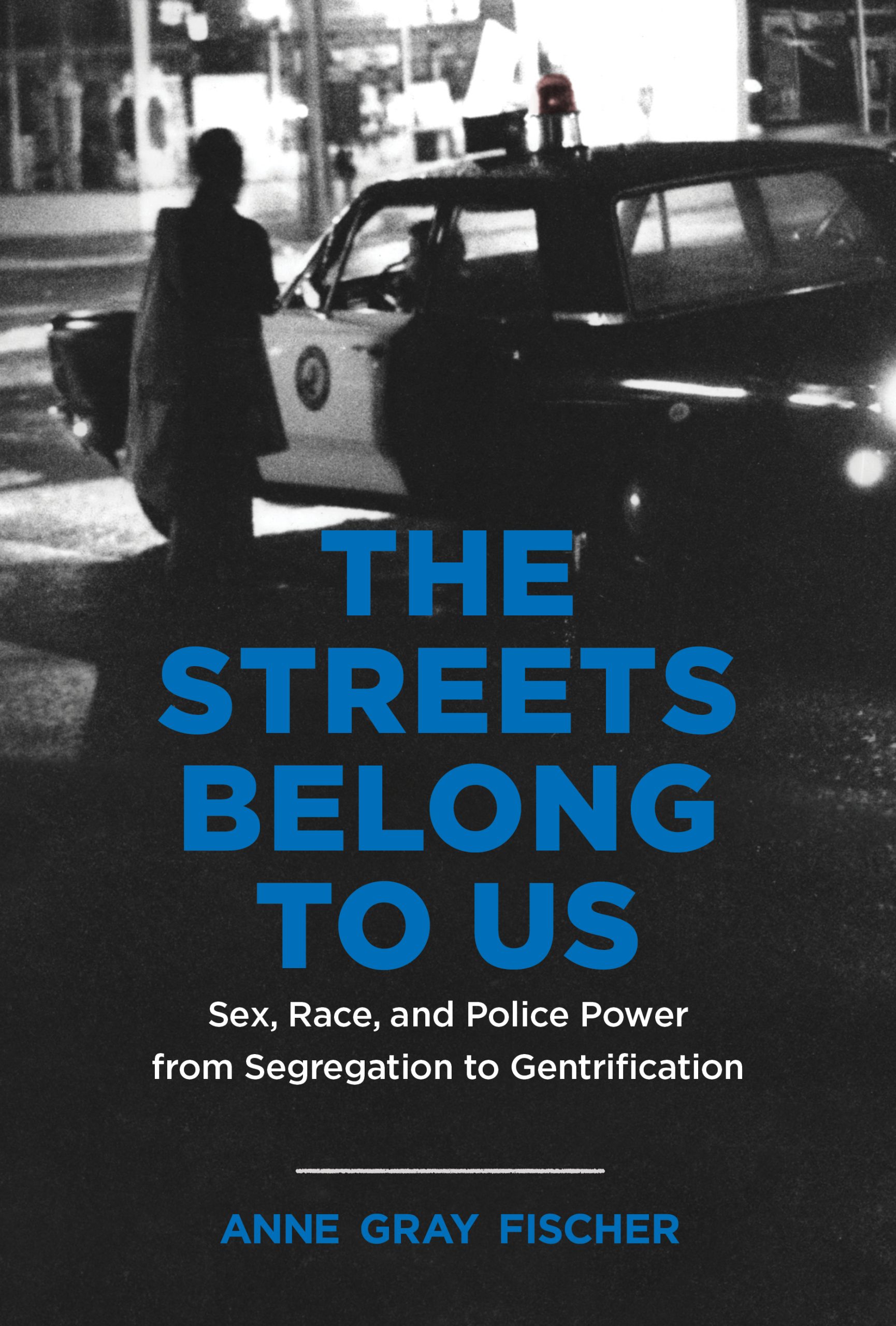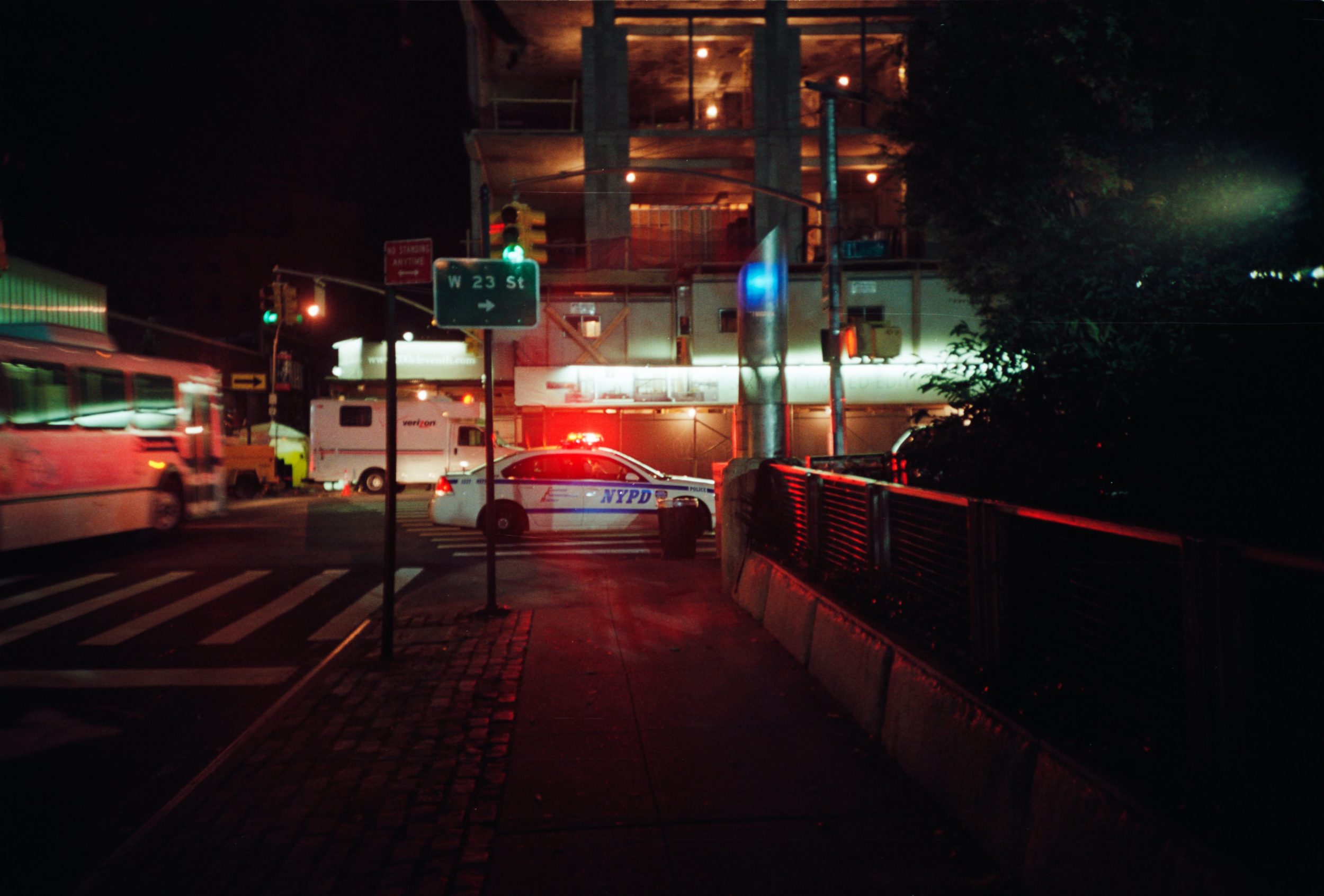So-called broken windows policing is a program that crowns officers as the arbiters and defenders of urban safety and order, as the ultimate solution to what scholar Clare Sears calls “problem bodies.” But the broken windows program needs laws to sustain it, and morals misdemeanors generate that power. Kate Mogulescu, who runs the Criminal Defense and Advocacy Clinic at Brooklyn Law School, which represents people charged with prostitution-related misdemeanors and survivors of human trafficking, says, “There is no other law that I can think of that gives the police that much power and discretion.” Prostitution-related misdemeanors enable the kind of law enforcement discretion that a 1971 report, Struggle for Justice, found “awesome in scope and by its nature uncontrollable.” Within this context, people who lack access to legal resources or political influence can only “hope that by [police] selection, training, and supervision, the police will be inculcated with a clear sense of the outer limit of their discretionary authority,” as George Kelling and James Q. Wilson, the architects of broken windows policing, wrote in their 1982 article. The mandate to enforce public order laws provides officers with a vast cover to operate beyond the scrutiny of the public.
With this breathtaking authority and discretionary power, sexual policing is structured as an inevitable and unaccountable breeding ground of state-sponsored violence and abuse. New York investigations have found daily police harassment — with officers approaching sexually profiled women and asking, “You’re not dead yet?” One woman reported that “the police are nasty, sarcastic, degrading.” It is common for police to intimidate women and threaten them with jail if they refuse to act as informants. Women are denied the freedom to go shopping, wait for a bus, get their hair done, visit friends, or generally live their lives. Police officers harass them simply because of their presence on city streets. “They want you to be homebound,” one woman said. In one report, 27 percent of women surveyed experienced police violence. The women were terrified of “[getting] a creepy cop” or a “psycho cop”; “sometimes they become very abusive with power.” One woman said her greatest fear when getting arrested is “not coming home at all.” Sexually profiled women, especially those with prior arrest records, do not have the resources or political clout to demand accountability — attempts to lodge complaints of police abuse with internal department watchdogs typically go nowhere — and police are free to exploit that vulnerability.

Sexual abuse is the second most prevalent form of police violence — and this is likely an undercounting. Researchers Andrea Ritchie and Priscilla Bustamante have documented the systematic practice of police sexual violence. Rape and the extortion of sex in exchange for the withholding of arrest are built-in features of sexual policing. Most common are the officers who ask women, “You wanna get arrested or you wanna give up some head?” A Black woman interviewed in 2007 said, “I had one cop who was like, ‘Well, if you do this sexual favor for me, then I won’t take you to jail.’ And I was like, ‘Take me to jail, ’cause I am not for free.’” A Washington, D.C., study found that nearly one in five sexually profiled people was “asked to provide sexual favors or services to police officers.” In addition to sexual extortion, police, both off-duty and in uniform, are frequently women’s paying customers.
Police sexual violence is a legally sanctioned tactic of morals enforcement. Undercover entrapment encourages police to engage in sexual acts with women to gain “evidence” — a practice that, for women, is experienced as sexual assault. It wasn’t until 2017 that Michigan banned police officers from engaging in penetrative sex with sexually profiled women. But these legal niceties cannot shield poor and marginalized women from the gross imbalance of power that is written into the law. In nearly 30 states, armed local and state police are protected from sexual assault charges by claiming that their sexual encounters with women are “consensual.” Sexual “contact” by police officers in the enforcement of morals laws remains legal in nearly all states; when lawmakers in Alaska tried to ban police sexual contact, the Anchorage Police Department quashed the bill. Women have reported being stalked, intimidated, and forced to perform anal, vaginal, and oral sex by undercover police before being arrested. One woman was so terrified after an undercover officer banged on her door, demanding anal sex and refusing her repeated requests for him to leave while her baby cried in the background, that when she finally relented — pleading with him not to “be rough” — and the backup squad raided her apartment, she urinated on herself. Notable exceptions of officers called to account — like Daniel Holtzclaw, the Oklahoma City officer who serially raped Black women with drug and prostitution records; or Henry Hollins, the New Orleans officer who kidnapped and raped a woman “with his gun and Taser at arm’s length” — hide the untold instances of officers who were not held accountable. Indeed, in most cases, these violent actions are considered the legitimate performance of officers’ duties. “The undercover can have a nice, cold beer and watch a girl take her clothes off — and he’s getting paid for it,” said retired sergeant Stephen Antiuk. These practices legitimize broader forms of police sexual violence against marginalized women: the African American Policy Forum reports that Black women are at the highest risk of any demographic group to experience police sexual violence.
When sex workers and sexually profiled women do report non-state sexual assault to police, “most [officers] treated reports of rape by prostitutes as false reports,” according to a federally funded 2010 study, which found that “in one city it was common practice [for police] to claim that prostitutes claimed rape only to get the free gynecological examination required by the city.” As a result, women who dare to report rape to police are in danger of being arrested for both prostitution and filing a false report, as happened to one Black woman outside Charlotte, North Carolina, in 2020. Proposed solutions like layering on laws that give sexually profiled women immunity to report other crimes — introduced in Vermont in 2020 and again in 2021 — have no impact on discretionary police power. Similarly, the ongoing police-aligned feminist projects to shift police attitudes on gender-based violence only buttress discretionary police power by placing public trust in police training rather than demanding public oversight. Women’s testimonies and scattered glimpses behind the veil of police power expose the routine fact of violence that is woven into sexual policing — all of it authorized in the name of urban safety and, grotesquely, protection for women.
Trans women of color are profoundly vulnerable to state neglect and police violence. In the 2015 U.S. Transgender Survey, more than half of the respondents reported some form of violence or abuse by police, with Indigenous trans women most likely to experience police violence. As Andrea Ritchie writes, searches, frisks, and pat-downs are daily sources of humiliation as officers seek “[to assign] a gender, to punish and humiliate trans people, to satisfy their curiosity, or for sexual gratification.”
Morals laws justify these practices as legitimate police work. In New York the loitering-prostitution law was widely regarded as a “walking while trans” law. Police arrested women based on their clothing and appearance. At least one officer admitted under deposition that he would “look for ‘Adam’s apples’ when considering whether to detain” a sexually profiled woman. Another New York Police Department officer explained that “when you put pressure on cops to come up with [arrest] numbers . . . it’s the black, it’s the Hispanic, it’s the LGBT community. We go for the most vulnerable.” As lawyer Mogulescu says, “You cannot be a trans woman of color standing on the street without risking arrest.” The stakes of these misdemeanor arrests were made brutally clear in 2019, when Layleen Polanco, a trans woman awaiting trial at the Rikers Island jail because she could not afford the $500 bail, was found dead in her cell. After over four decades on the books, New York’s loitering law was finally repealed in February 2021 thanks to the tireless organizing of predominantly Black and Latinx queer and trans activists and their allies. But countless other morals misdemeanors remain in effect nationwide. “There’s notions that we’re not supposed to exist,” said Bamby Salcedo, founder of the Trans Latina Coalition. “The police have also internalized all of that and perpetrate that [violence]. So because we have to survive in some type of way, because we’re not supposed to exist in this world, we’re criminalized simply because of who we are.”
Systematic police targeting compounds trans women’s vulnerability to nonstate violence. In a chilling parallel to the serial murders of Black women across the 1970s and 1980s, there is an epidemic of violence against trans women of color. In 2020 the Human Rights Campaign documented the murders of forty-four transgender people — the highest number since the organization started tracking this data in 2013. As a Latina trans woman said in an interview, “The police are never there when you need them the most. Especially if you are a transgender girl or gay [or] LGBT.”
Seen from the perspective of sex workers and sexually profiled women, “law and order” is lawless, violent, and chaotic. Women’s experiences with sexual policing expose the lie that police provide safety and protective services. On the contrary, police create violence and danger. Prostitution-related laws make punishment, not protection, the job of police. Public order enforcement gives police the mandate — and the excuse — to harass, arrest, and assault sexually profiled women simply for being on city streets. Women may occasionally report helpful and positive encounters with individual officers, but decency is up to the officer’s own discretion — and while violence is written into the legal repertoire of police tools to secure urban order, decency is not. As one anonymous Washington, D.C., resident said, “I feel less safe with the police than without them.”
Excerpted from The Streets Belong to Us: Sex, Race, and Police Power from Segregation to Gentrification by Anne Gray Fischer. Copyright © 2022 by Anne Gray Fischer. Used by permission of the University of North Carolina Press.
Image: Gemma Evans/Unsplash

